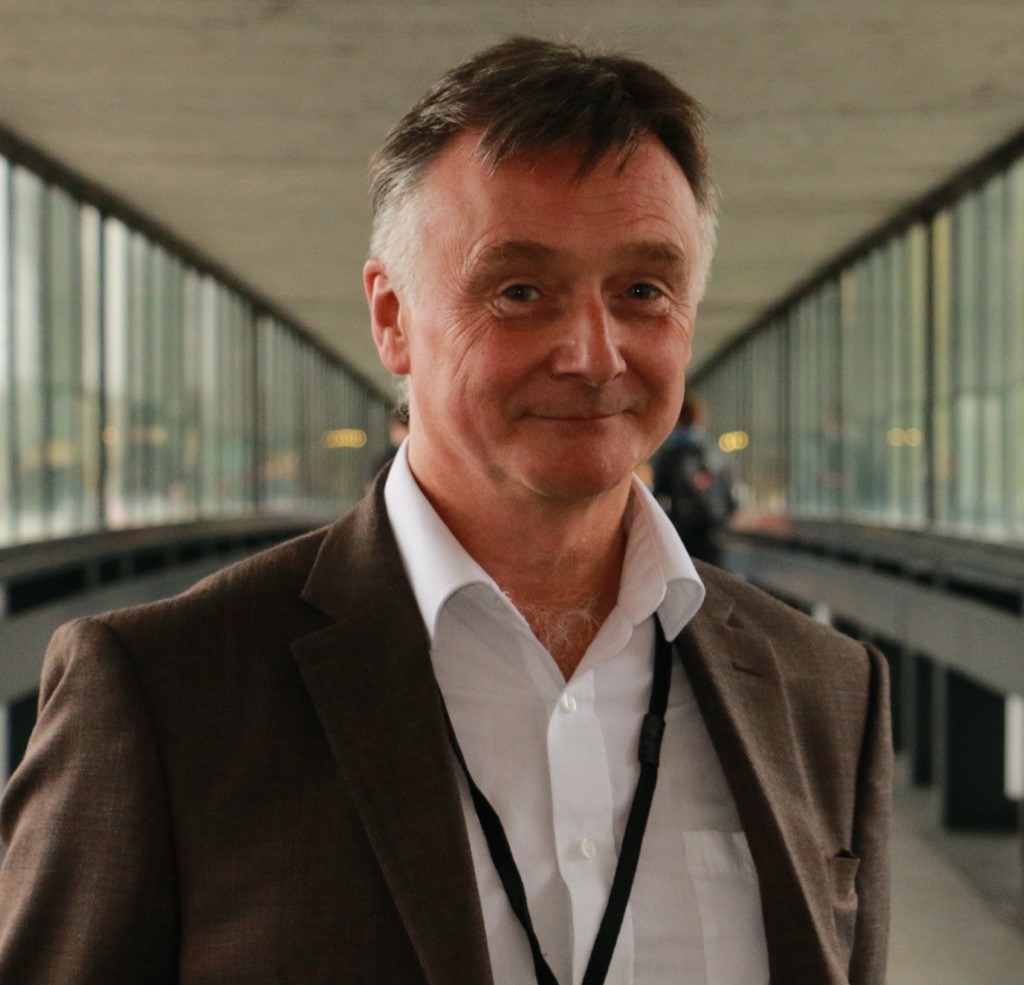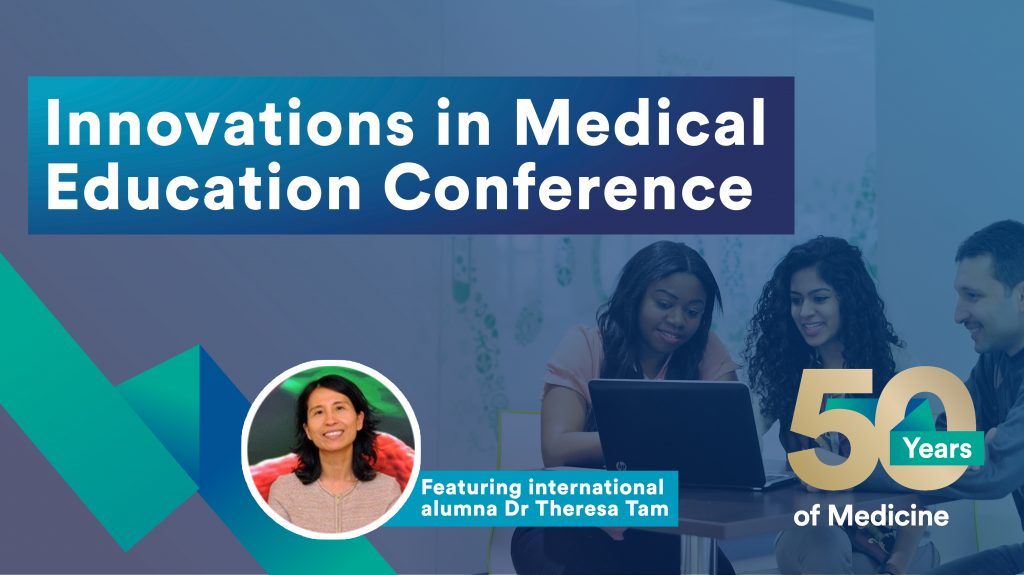January 22, 2021, by School of Medicine
50 at 50: Innovations in Medical Education Conference
Celebrations of 50 years of Medicine and 30 years of Nursing at Nottingham are in full swing and the conference on Innovations in Medical Education held on the 13 January was a fitting part of these events. The programme included speakers from a wide range of backgrounds and covered ground-breaking research, medical careers, entry into medical school, widening participation, transition and well-being of students, support for students, adaptations to the pandemic including the major changes to CP1 required to deliver it on-line as well as clinical skills teaching, decolonising the medical curriculum and even a bit of crystal ball-gazing!
We were very fortunate to hear from a prominent alumna, Dr Theresa Tam, who is Chief Public Health Officer at the Public Health Agency of Canada. Her reflections on being a medical student in Nottingham and fond memories of her time here were interesting, and described by a senior colleague as ‘Totally inspiring’. She was able to view the medical course from a unique perspective and commented on its quality and how it had helped to prepare her for a dynamic career in medicine. She had even kept her medical school scarf, which she wore during her presentation!
An evaluation of the conference is in progress, but a few of the comments in chat give a flavour of responses and the variety of discussion from the day:
- … we have a social responsibility to the primary school children of today who will be class of 2030
- Do we think we would have ever had these current e-learning revolution/innovations without the pandemic? I feel we may have but not at the pace we have in the last 12 months.
- We’re proud that a lot of the alumni from Nottingham’s MMedSci Medical Education are senior leaders locally, nationally and globally …
- My careers advisor said don’t even think about medicine as a career. I attended a Glasgow Comprehensive and I didn’t know anyone who had gone to Medical School
- I am from an ethnic minority background and can resonate with this presentation [on Widening Participation into medicine]. Especially the comment about ‘working hard to compensate’. Had a tough time at Med School but survived it. Good to see your work on WP.
- No-one from my state school had ever gone to Medical School I was not allowed to study 3 sciences at GCSE and had to teach myself Biology GCSE during Year 12 while trying to do A level Biology.
- I think it’s important to recognise the role the whole profession has in perpetuating things – doctors massively perpetuate a belief all doctors need to look the same.
- The discussions [about decolonising the curriculum] need to be taken into the powerful bodies which influence postgraduate curricula, e.g. Royal Colleges. Current, not just future doctors/healthcare professionals, need to engage with decolonisation given the centrality of the clinical workplace as learning environment.
- Decolonisation is very much about power.
- and my personal favourite: “I vividly remember practicing for my Medical School finals on a large teddy bear…”, but I guess you had to be there to appreciate it!
The conference was organised by Stevie Agius, Julie Hall and Alistair Warren. You can view the list of contributors and sessions online. Many thanks to all involved for giving their time so generously and for being so engaged, but a particular thanks to Stacy Johnson MBE for chairing the panel discussion on decolonising the medical curriculum.
 As other bloggers in this series have noted, medical education has changed hugely since the School of Medicine was set-up over 50 years ago. The opportunities for staff to enhance their skills and knowledge through postgraduate courses such as those run in the Medical Education Centre have played a key part in this and research opportunities in medical education, clinical practise and medical sciences are available to staff, postgraduates and undergraduates at Nottingham, making us unique. We are also the largest medical school in the UK, with students based in Nottingham, Derby and now Lincoln. Indeed we might have called the celebrations 50/30/1 to recognise the first year of successful operation of the Lincoln Medical School!
As other bloggers in this series have noted, medical education has changed hugely since the School of Medicine was set-up over 50 years ago. The opportunities for staff to enhance their skills and knowledge through postgraduate courses such as those run in the Medical Education Centre have played a key part in this and research opportunities in medical education, clinical practise and medical sciences are available to staff, postgraduates and undergraduates at Nottingham, making us unique. We are also the largest medical school in the UK, with students based in Nottingham, Derby and now Lincoln. Indeed we might have called the celebrations 50/30/1 to recognise the first year of successful operation of the Lincoln Medical School!
While planning the conference it became clear that we could only scratch the surface of the enormous range of innovations and research in medical education taking place at Nottingham. Several topics were suggested for future conferences and further suggestions are welcome. Topics suggested include cross-faculty collaborations, primary care and curriculum development, the latter being particularly timely because of the development of the clinical course in medicine being led by Dr Lucy Ambrose. I suspect we will have enough suggestions for high quality innovations and research until the 100/80 celebrations in 2070!
Alistair Warren is Vice-Dean Early Years and BMedSci (Lincoln) and professor of Anatomical Sciences. A biomedical scientist, he is Fellow of the Anatomical Society, Fellow of the Royal Microscopical Society, and Principle Fellow of The Higher Education Academy.
No comments yet, fill out a comment to be the first


Leave a Reply